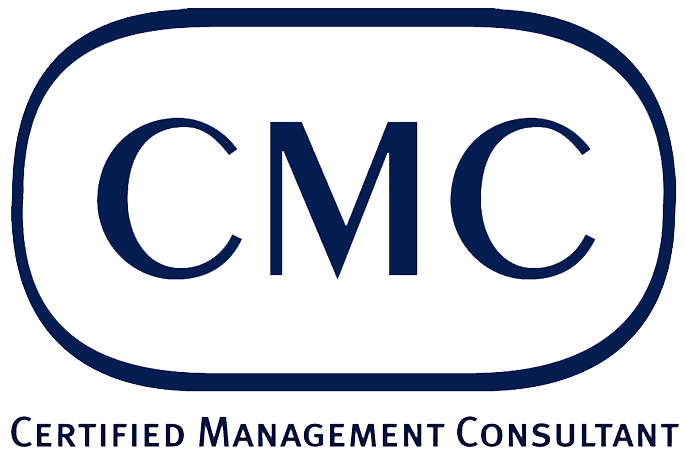
Uniform Code of Professional Conduct
The goal of this Uniform Code of Professional Conduct (the ‘Code’) is to outline the professional duties that safeguard the public, prioritize the client’s interests, and uphold the integrity of the Certified Management Consultants (CMCs) profession.
Responsibilities to the Public
Certified Members must always be aware of and adhere to all relevant legislation and laws.
Certified Members must not cause anyone to violate any applicable legislation or laws at any time.
Certified Members must not act or serve on behalf of anyone who causes or may cause them to breach any applicable legislation or laws at any time.
Certified Members must not make public statements on behalf of the Institute or its members unless they have written authorization to do so.
If another person or party requests a Certified Member to make a representation on behalf of the Institute or its members, the member should either:
Refer the request to the Institute’s designated spokesperson(s); or
Request written authorization from the Institute.
Certified Members intending to speak on behalf of the Institute must obtain proper written authorization beforehand.
The public has the right to trust Certified Members (both individually and collectively). Therefore, any actions by a Certified Member that undermine this trust will be deemed as “acting in a manner unbecoming to the Profession.” This includes:
Violating any applicable legislation or laws.
Breaching this Code.
Engaging in any actions, whether within or outside the professional context, that may be, or may be perceived as, detrimental to the Profession.
Certified Members who violate this Code may face suspension, expulsion from membership in their Institute, or other penalties as outlined in the Institute’s disciplinary procedures.
Responsibilities to the Profession
Certified Members must keep their knowledge and understanding of this Code and the Common Body of Knowledge, as referenced on the CMC-Philippines website, current, including any amendments or updates.
Certified Members should advance their skills and knowledge beyond the basics outlined in the Common Body of Knowledge, especially in their preferred areas of practice, to meet the needs of their clients and maintain standards comparable to other consultants in the same field.
Certified Members must discipline themselves to uphold the high standards of professional and ethical practice outlined in this Code.
Certified Members should be able to trust that their peers will behave appropriately. Any actions that undermine this trust will be seen as acting in a manner unbecoming to the Profession.
Certified Members who act in a manner unbecoming to the Profession may be reported to their Institute by other Members.
Certified Members should report to their Institute, and/or encourage affected clients or members of the public to report, any behavior by a Certified Member that they believe constitutes acting in a manner unbecoming to the Profession.
Certified Members are not only accountable for their own advice and actions but must also ensure that all management consultants working under their leadership on consulting assignments understand and adhere to this Code. This includes peers, employees, and subcontracted associates.
Certified Members will be held responsible for any breach of this Code reported to their Institute involving any member of their consulting team. They will face the same actions and consequences as if they alone had failed to comply with the Code, provided it is determined that they were aware, or should have been aware, of the breach.
Certified Members must maintain conduct that upholds and promotes a positive public image of the Profession.
Certified Members must ensure their actions do not conflict with or appear to compromise their integrity, objectivity, or independence.
Certified Members must maintain a physical and emotional state suitable for client work, especially when offering professional advice.
Certified Members must ensure all their business activities, both as consultants and otherwise, comply with applicable legislation, laws, and this Code.
Responsibilities to Other Members
A Certified Member’s work is considered under critical review if a client or the client’s representative requests another Certified Member to evaluate and comment on any written reports, memoranda, or working files.
Certified Members must not accept a request to review another Certified Member’s work if they have a conflict of interest.
Certified Members must notify in writing the Certified Member whose work they have been asked to review.
The findings of a review should be communicated to the Certified Member being reviewed unless such discussion would compromise client confidentiality or other client obligations.
The Institute’s Professional Conduct and Discipline Committee may request one or more Certified Members to review the work of another Certified Member, with the Committee setting the review’s terms of reference.
Responsibilities to the Client
Certified Members must refrain from criticizing other Certified Members, either directly or indirectly, to secure business or in any other aspect of their professional activities.
Certified Members should not engage in misleading advertising, pressure tactics, or other unprofessional methods to obtain business.
Certified Members must not portray themselves as qualified to undertake an assignment unless they possess both the appropriate education and practical experience.
Certified Members shall not accept assignments for which they lack relevant qualifications, including education and experience, even if a client, aware of these limitations, specifically requests their involvement.
Certified Members are required to document in writing their relevant qualifications and those of all proposed management consultants for the engagement.
Certified Members must detail how their qualifications and those of each team member will be applied in the assignment.
Certified Members must also clarify their own role in the engagement and the roles of each team member.
The written terms of reference shall include:
Clear objectives of the assignment.
Steps, milestones, and deliverables outlined in the proposed work plan.
Timeline specifying steps, milestones, deliverables, and completion date.
Names, relevant qualifications, and roles of all proposed consultants.
Fee structure.
Billing arrangements, covering expenses, disbursements, and applicable taxes.
Certified Members are prohibited from commencing an assignment until the client has formally approved the written terms of reference.
Certified Members must document in writing the budget and billing arrangements concerning professional fees, expenses, disbursements, and applicable taxes.
If changes to the terms of reference occur during the assignment, Certified Members must ensure that any resulting impact on fees, expenses, disbursements, taxes, or billing arrangements is communicated to the client and mutually agreed upon in writing.
For the purpose of budget and time management, Certified Members are prohibited from reducing consulting time or senior consulting involvement in an assignment if doing so would compromise the quality of service outlined in the terms of reference.
Certified Members must refrain from accepting assignments of significant scale or complexity if the proposed fee arrangements pose a substantial business risk to the client.
Certified Members must obtain permission from all involved parties before accepting assignments with clients’ competitors or other organizations where potential conflicts of interest may arise.
Unless bound by confidentiality obligations, Certified Members are required to disclose any personal, professional, or business interests that could compromise their integrity, objectivity, or independence to a client or prospective client.
Certified Members are obligated to adhere to a client’s directives within the bounds of applicable legislation, laws, and this Code concerning the client’s interests. If compliance is not feasible, Certified Members must withdraw from the assignment.
Certified Members shall not recruit or refer any employee working on an assignment for a client to their own firm or other firms without prior notification to the client and obtaining their consent.
Certified Members are prohibited from disclosing any confidential client information without explicit consent from the client. They must adhere to the client’s privacy policies when handling personal information of third parties.
Confidential client information and third-party personal data must be stored according to client policies and industry-standard administrative practices to ensure its security.
All information obtained from clients must be treated as confidential, unless directed otherwise by the client or as required by law. Certified Members shall not disclose protected information to third parties under any circumstances governed by applicable legislation.
Upon completion of an assignment, Certified Members must offer to return all engagement-related materials and any third-party personal data to the client.
If confidential client information or third-party personal data is compromised beyond the Certified Member’s control, they must promptly notify the client and take necessary steps to safeguard their interests.
Certified Members should encourage clients to classify sensitive information and avoid handling such information whenever feasible.
Clients should be kept informed about the storage location and status of all confidential and third-party personal information.
Certified Members are prohibited from making public statements that could lead to the inadvertent disclosure of confidential client information or third-party personal data.
The obligation to maintain confidentiality does not supersede compliance with a legally issued subpoena or summons, provided the disclosure does not violate applicable laws.
Before starting assignments, Certified Members must ensure they do not agree to terms that could compromise their ability to carry out the work fairly, independently, and objectively.
If situations arise that could impact a Certified Member’s objectivity or the perception thereof, they should promptly address and attempt to resolve the issue with the client.
If the matter cannot be resolved satisfactorily, Certified Members reserve the right to withdraw from the assignment.
